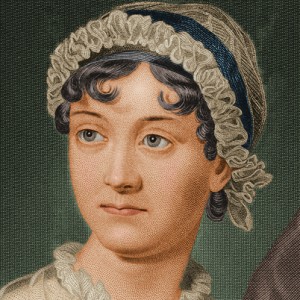Bad Advice Wednesday: Start Everywhere
categories: Bad Advice / Cocktail Hour
3 comments
Here’s a test exercise to invoke as you’re writing a book or story, a play or essay, really anything: flip to any page thereof and declare any paragraph or scene you find there the first paragraph or scene of the work in hand. And read as if it were. Read it aloud. Does it rise to the occasion? It should. Does it inspire a new way of thinking about your material or story? It might. Does it seem to cast a different character or idea or storyline in a newly leading role? Think about that (all of our characters are the stars of their own stories). Is the voice and timbre and delivery and energy and interest and draw and promise everything the original start was? The current finish? It better be. No room for slacking anywhere, never. Every paragraph (or scene) should be rich enough to be the first. Repeat.
I bring this up because so many books flag in the middle, only to revive long enough to deliver an ending. Others poop out altogether, DOA. It’s an easy case to make, that your opening and ending should be sharp and commanding. But why should the standard for any other paragraphs be less demanding?
Let’s try this with Pride and Predjudice, on the bet that most of you have read it and know the actual first paragraph well (young man with a fortune, etc., etc).
So, opening randomly, I find the start of Chapter 25 (and startlingly, my mother’s elegant handwriting in this old edition, a cryptic and pointed notation: “Bennet needlesome.”): “After a week spent in professions of love and schemes of felicity, Mr. Collins was called from his amiable Charlotte by the arrival of Saturday.”
I’d say that promises a story! While in fact, Austen is in the midst of delivering one.
 From The Call of the Wild, about halfway in: “By the time Cassiar Bar was reached, he was so weak that he was falling repeatedly in the traces. The Scotch half-breed called a halt and took him out of the team, making the next dog, Sol-leks, fast to the sled. His intention was to rest Dave, letting him run free behind the sled. Sick as he was, Dave resented being taken out, grunting and growling while the traces were unfastened, and whimpering broken-heartedly when he saw Sol-leks in the position he had held and served so long. For the pride of trace and trail was his; and sick unto death, he could not bear that another dog should do his work.”
From The Call of the Wild, about halfway in: “By the time Cassiar Bar was reached, he was so weak that he was falling repeatedly in the traces. The Scotch half-breed called a halt and took him out of the team, making the next dog, Sol-leks, fast to the sled. His intention was to rest Dave, letting him run free behind the sled. Sick as he was, Dave resented being taken out, grunting and growling while the traces were unfastened, and whimpering broken-heartedly when he saw Sol-leks in the position he had held and served so long. For the pride of trace and trail was his; and sick unto death, he could not bear that another dog should do his work.”
Right? That could start a book or a story, full excitement. Jack London, halfway in, is still delivering a plot, but adding fresh knowledge and deepening character. Plus, the dying dog’s name is Dave. Just saying.
 And how about a quieter novel, Gilead, by Marilynne Robinson? Oh, page 66, since that was the page I happened to turn to in the much shorter The Call of the Wild.
And how about a quieter novel, Gilead, by Marilynne Robinson? Oh, page 66, since that was the page I happened to turn to in the much shorter The Call of the Wild.
“This morning I have been trying to think about heaven, but without much success. I don’t know why I should expect to have any idea of heaven. I could never have imagined the world if I hadn’t spent almost eight decades walking around in it. People talk about how wonderful the world seems to children, and that’s true enough. But children think they will grown into it and understand it, and I know very well that I will not, and would not if I had a dozen lives. That’s clearer to me every day. Each morning I’m like Adam waking up in Eden, amazed at the cleverness of my hands and at the brilliance pouring into my mind through my eyes—old hands, old eyes, old mind, a very diminished Adam altogether, and still it is just remarkable. What of me will I still have? Well, this old body has been a pretty good companion. Like Balaam’s ass, it’s seen the angel I haven’t seen yet, and it’s lying down in the path.”
Whoa. Even contemplative as it is, that could be the first paragraph of a great novel for sure (it promises so much, delivers so much character), and yet it’s just an odd paragraph in the middle of a section in the middle of a chapter in the middle of a book.
Now mine your own bookshelves.
Later, turn to your own work. What’s happening on page 66? And on all the others? And why should it be any less riveting than what happens in paragraph one?
#
Bill Roorbach has been somewhat adrift since the end of his book tour, to be found in his garden or in his woods, more and less confused about what do to next. He learned to type in high school during a bout of pneumonia, when his mother brought him tea and Ruth Ben’Ari’s typing manual, saying: “You might as well learn to type if you’re going to miss school for two weeks.” Proudly, he typed the passages above without looking at the keyboard, and making only a few mistakes. But who knew in 1969 that we’d all have computers in our laps before long, and that carbon paper would be extinct, and that you, gentle reader, would see these words minutes after they were written, all around the world?




Excellent advice, Bill. Would that all writers followed it!
I am right in the middle of a saggy novella. This is good bad advice. Thanks, Bill:)
Oh, I’m so very grateful for this! I am also grateful that Bill learned how to type.